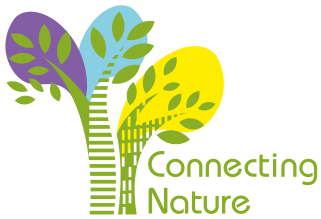
Turin’s Living Lab for this project is the district of Mirafiori Sud. Located on the river Sangone, it is a former working-class area with 40,000 inhabitants and various social groups. The area has high potential for urban regeneration, with its active local associations, strong cultural heritage and abandoned industrial buildings available for new community ventures.
The “Castello di Mirafiori” school will host the Living Lab information centre, which will also serve as a base for testing the innovative solutions. This will enable the development of a new school-civic centre model.
The project ProGIreg is funded by the European Commission under the Horizon 2020 programme and will run from June 2018 until 2023. ProGIreg stands for ‘productive Green Infrastructure for post-industrial urban regeneration’: nature for renewal. ProGIreg develops self-sustaining business models for nature-based solutions, based on a scientific assessment of the multiple benefits they provide for social, ecological and economic regeneration.Together, local citizens, governments, businesses, NGOs and universities design the nature-based solutions and make them happen.
- Local authorities in Turin have identified the need for additional arable soil for new green spaces and have decided to use the Sangone Park for producing and testing regenerated soil. This soil is ideal for urban forestry and the aim is to make the regenerated soil available for use in public green spaces throughout the city.
- Abandoned parts of the Sangone Park will be redesigned and used for community urban gardens. The aim is to improve the safety of the area and encourage community activities and productivity. In the Piemonte Park, 2.5 hectares of land will be used for social farming activities including teaching, training and for job placements.
-
Aquaponics is ideal for promoting local food production in areas with contaminated or poor quality soil. Similarly to NbS 3, food produced locally by locals can lead to healthier diets and contribute to community-building. Additionally, aquaponics systems will create green job opportunities.
This project intends to implement low-cost but stable aquaponics systems, which are easy to operate.
-
Green roofs and walls will be fitted to public buildings, including the Casa nel Parco community centre, social housing, schools and other buildings - soon to be chosen with the help of local citizens – within the Turin Living Lab.
-
A new green cycling path along the river Sangone will connect to the Turin metropolitan cycling network. Access to the 'Sangone beach' and improved vegetation and pollinator biodiversity is also planned.
-
Turin will create a financial instrument to support the scaling-up of nature-based solutions. This will include a catalogue of environmental actions that companies can implement as part of their corporate social responsibility.
-
Pollinator biodiversity complements and links all other greening actions of proGIreg since pollinators are essential to a healthy and functioning ecosystem. To make urban areas more pollinator-friendly, cities can reduce pesticide usage and increase the size of green spaces and plant species diversity. Also green networks and corridors help prevent in-breeding of isolated populations, which can lead to species extinction. Monitoring the variety and amounts of bees and butterflies is a good way of assessing the pollinator-friendliness of a city. ProGIreg’s citizen science approach involves joining with local citizens to create, monitor and promote awareness of the pollinator-friendly spaces.
In our front-runner cities, eight different will create a productive green infrastructure that not only helps improve living conditions and reduce vulnerability to climate change but also provides measurable economic benefits to citizens and entrepreneurs in post-industrial urban districts.
- Developing climate change mitigation
- Restoring ecosystems and their functions
- Greater ecological connectivity across urban regenerated sites
- Increase achievements of biodiversity targets
- Increase Biodiversity
- Increased cultural richness and biodiversity
- Enhancing sustainable urbanisation
- Changing image of the urban environment
- Creation of green jobs relating to construction & maintenance of NBS
- Increase awareness of NBS solution & their effectiveness and co benefits
- Increase population & infrastructures protected by NBS
- Increase social interaction
- Increase well-being
- Social learning about location & importance of NBS
The ultimate aim, through effective communication and dissemination work, is to increase the uptake of proGIreg nature-based solutions models and approaches among key target audiences, including the local citizens, civil society, policy-makers, academia and the private sector.
Replication workshops will be organised for city staff, the private sector, civil society and other relevant stakeholders from both within and outside of the project, to facilitate knowledge transfer, exploitation and create a community of practice.
The proGIreg team will create the training course “Nature-based urban regeneration” as a Massive Open Online Course (MOOC), which will be fully open-access and available via edX. Themes to be covered in the videos will range from the co-design of nature-based solutions to their implementation and management. The course will last eight weeks and successful participants receive a certificate at the end.
Nature-based solutions have huge potential to address technical, social and economic challenges and to make urban transformation work with and for citizens.
- 11. Sustainable Cities and Communities
- 13. Climate Action
